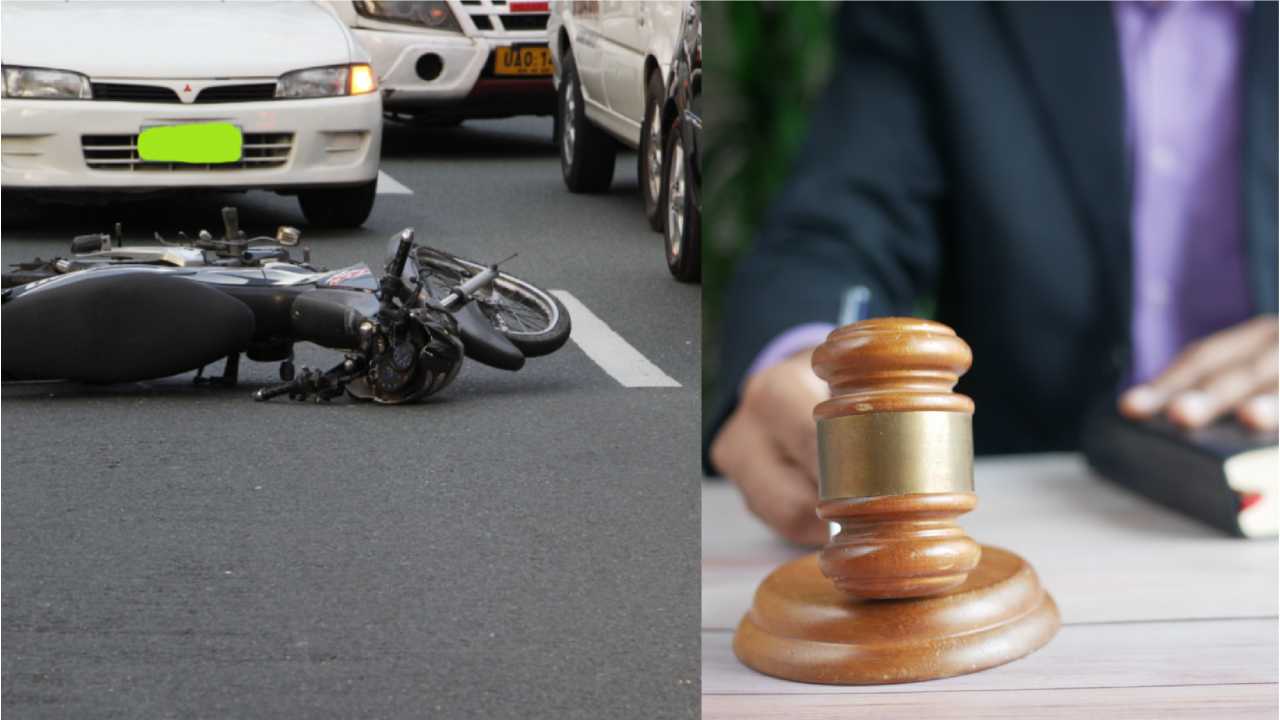

Sponsored Ads

Sponsored Ads

Riding a motorcycle is an exhilarating experience, but one that’s fraught with risks. Being aware of the legal implications that follow after surviving an accident is essential.
Victims may have numerous questions related to motorcycle accidents. From liability to compensation, finding answers to these questions is essential to understanding your rights and getting fair compensation.
Questions a Motorcycle Accident Survivor May Have
Here are six questions that a motorcycle accident survivor may have.
1. How Do Road Conditions Impact Motorcycle Safety and Legal Claims?
Poor road conditions can significantly increase the risk of motorcycle accidents. Potholes, loose gravel, oil slicks, and poorly marked road surfaces can compromise a rider's control and lead to severe injuries.
Government agencies responsible for road maintenance can be held liable for accidents caused by hazardous road conditions. Gathering evidence to support your claim is crucial if you're involved in an accident due to poor road conditions. Here are some steps you can take:
- Document the scene: Take photos of the damaged road surface, any debris, and the location of the accident.
- Seek medical attention: Document your injuries and treatment.
- Report the accident to the authorities: File a police report and obtain a copy.
- Consult a legal professional: An experienced attorney can help you understand your rights and seek compensation.
2. Can Motorcycle Passengers Make a Claim Against a Motorcyclist?
A motorcycle passenger can claim against the rider in certain circumstances. This often involves the concept of vicarious liability, where one person is held responsible for the actions of another.
However, it's important to note that simply being a passenger on a motorcycle doesn't automatically entitle you to compensation. To successfully pursue a claim, you would generally need to prove that the rider was negligent in some way, such as:
- Reckless driving: This includes speeding, swerving, or driving under the influence of drugs or alcohol.
- Failure to maintain the motorcycle: It could involve neglecting regular maintenance or riding a motorcycle with known mechanical issues.
- Disregarding traffic laws: This might include running red lights, failing to yield, or not wearing a helmet.
Ultimately, the specific circumstances of the accident will determine whether a passenger can successfully sue the rider.
3. Is There a Statute of Limitations for Motorcycle Accident Cases?
Yes, a statute of limitations exists for motorcycle accident cases. This means you have limited time to file a lawsuit after the accident. It's crucial to consult with an attorney as soon as possible to ensure you meet this deadline and protect your legal rights.
4. What if Another Motor Vehicle Driver Caused My Motorcycle Accident?
If another driver's negligence caused your motorcycle accident, you may be able to hold them liable for your injuries and damages. To prove negligence, you may demonstrate that the other driver owed you a duty of care, breached that duty, and their negligence directly caused your injuries.
Insurance plays a significant role in compensating victims of motorcycle accidents. If the other driver was at fault, their insurance policy may cover your medical expenses, property damage, and lost wages. However, it's essential to gather evidence to support your claim, such as:
- Police report: This document will provide details about the accident, including the other driver's information and any citations issued.
- Photos of the accident scene and damaged vehicles: Visual evidence can help corroborate your account.
- Medical records: These documents will document your injuries and treatment.
- Witness statements: If any witnesses saw the accident, their statements can be valuable in supporting your claim.
- Vehicle repair estimates: These estimates can help you determine the cost of repairing your motorcycle.
5. What if Negligent Motorcycle Repairs Caused My Accident?
The repair shop can be liable if a negligent repair caused your motorcycle accident. Negligence occurs when a repair shop fails to exercise reasonable care, leading to a dangerous condition that causes an accident.
Common examples of negligent repairs include improper assembly, incorrect part installation, or failure to identify and address underlying mechanical issues.
To hold a repair shop accountable, you should gather evidence such as repair records, photos of the damaged motorcycle, and witness statements. Consulting with a lawyer can help you understand your legal options and pursue compensation.
6. Can I Sue if My Motorcycle Was Defective?
If a defect in the vehicle itself caused your motorcycle accident, you may have grounds for a product liability lawsuit. Product liability claims hold manufacturers and sellers responsible for defective products that cause injuries.
Motorcycle defects can range from design flaws to manufacturing errors. Some common examples include
- Faulty brakes
- Defective tires
- A design that makes the motorcycle unstable
To pursue a product liability claim, you have to prove that the motorcycle was defective, the defect caused your injury, and the manufacturer or seller is liable. Consulting with a legal professional can help you navigate the complex legal process and protect your rights.
Conclusion
Understanding the legal complexities of motorcycle accidents is crucial. If you've been involved in an accident, seeking legal advice is essential. An experienced attorney can help you navigate the legal process, protect your rights, and get you the compensation you deserve.
Sponsored Ads

Sponsored Ads

